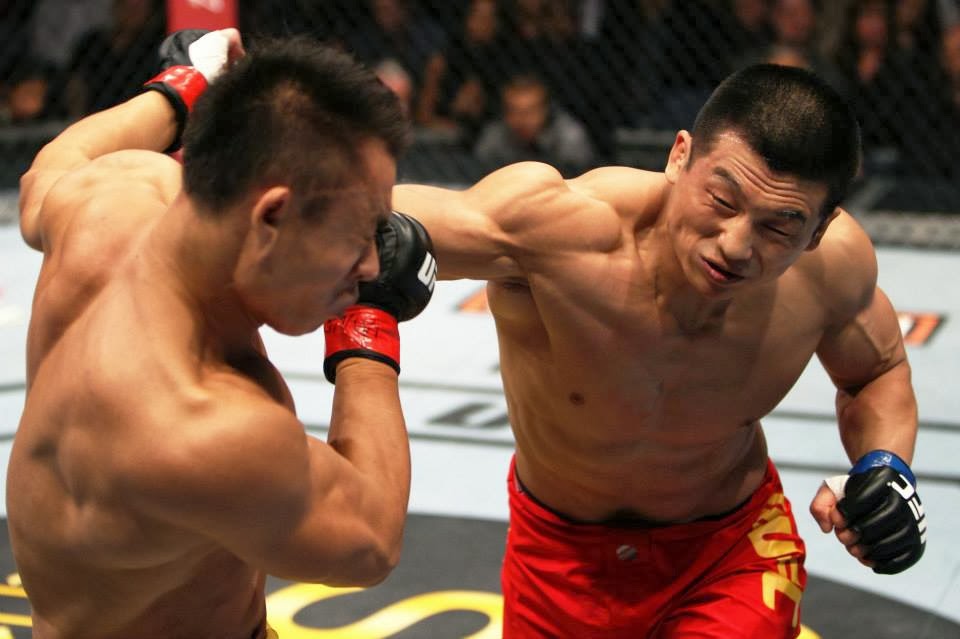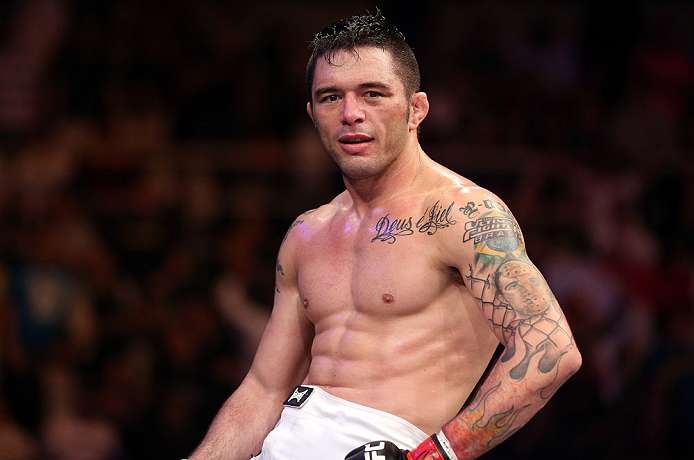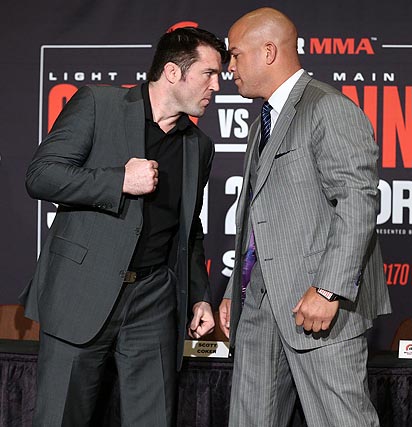This past weekend, mixed martial arts fans had the opportunity to witness the finale of the China-based season of The Ultimate Fighter. Even though the excitement around Dong Hyun Kim’s knockout in the main event was one of the MMA high points coming out of the weekend, going into the event, there were real questions about whether there is any true value to these foreign seasons of TUF. However, based on what transpired, popular opinion should side with the answer of “yes.”
Despite the controversy that surrounded the judges’ decision to award the fight to Wang Sai in the welterweight final, both he and Lipeng Zhang were clearly crowd favorites that night. That support shown by the fans in Macau demonstrated that while these international seasons do not feature fighters that are popular to American fans, the UFC still benefits from putting them in the Octagon, particularly in front of local audiences. And the UFC’s Fight Pass platform is the perfect environment for the cultivation of these fighters’ UFC careers.
At this point in time, the Ultimate Fighting Championship has produced or planned production on six foreign TUF seasons. This includes the season in China which just concluded, the Brazilian seasons — the third of which begins this month, and two seasons in which Australian fighters competed against fighters representing another country: one against fighters from the United Kingdom, and another against fighters from Canada. Unfortunately for the promotion, none of the fighters that have come out of those seasons have established themselves as major assets to the company.
But that doesn’t mean that they don’t provide some value to the UFC. The UFC’s Brazilian expansion would not be possible without a roster of Brazilian-born fighters who have followings in their home country; the various seasons of TUF: Brazil help facilitate that. Cezar “Mutante” Ferreira and Rony Jason, the winners of the first TUF: Brazil season, have been featured prominently on Brazilian cards since winning their respective tournaments back in 2012 at UFC 147. Neither man has fought yet in any other country where the UFC has established a foothold, though had Jason been able to defeat Jeremy Stephens back at UFC Fight Night 32, it’s possible he would have been utilized on cards in different areas. He wasn’t able to keep the momentum going, and now both he and Mutante are slated to compete at UFC Fight Night 38 in Natal, Brazil. Both are prime examples of the way these international TUF season winners should be used.
For many of these international TUF winners, the onus will be on them to develop into the stars they wish to be. That might mean traveling to other countries to train at some of the best schools in the sport. Winning is always the name of the game, and even though it’s not the be all and end all to becoming an MMA star, the UFC often sees value in an athlete that continues to win, and once that happens, there’s no limit to the amount of resources the company will invest in promoting said fighter’s career.
The people behind the UFC have long made it clear that they wish to build their brand across the world in countries that have an appetite for combat sports. For example, the promotion announced TUF: Latin America, which will be an attempt to gain a foothold among Mexican and Latin American fans that have been a staple in the fight world for decades. If any of the fighters on the show develop into stars, the UFC will have the opportunity to tap into the audience that creates major paydays for athletes like Julio Cesar Chavez Jr. and Miguel Cotto. When Latino fighters galvanize the fanbase, history has shown that they can draw large audiences, both live and on pay-per-view; it’s about time that a mixed martial arts promotion found a way to do so.
Although domestic ratings for these international seasons of The Ultimate Fighter do not reflect high viewership, that only tells part of the story. The promotion still derives some benefit from these programs, and the fighters who compete on them. By showcasing competitors that local fans can get behind, the UFC affords itself additional opportunities to expand its scope, and hopefully find the next big star to generate profits for the organization’s coffers, no matter what currency those profits end up being in.
**********

UFC Fight Night: Kim vs. Hathaway, aka The Ultimate Fighter China Finale took place on March 1, 2014 at The Venetian Macao’s CotaiArena in Macau, China.
Click the stars to rate how good you think The Ultimate Fighter China Finale was.






